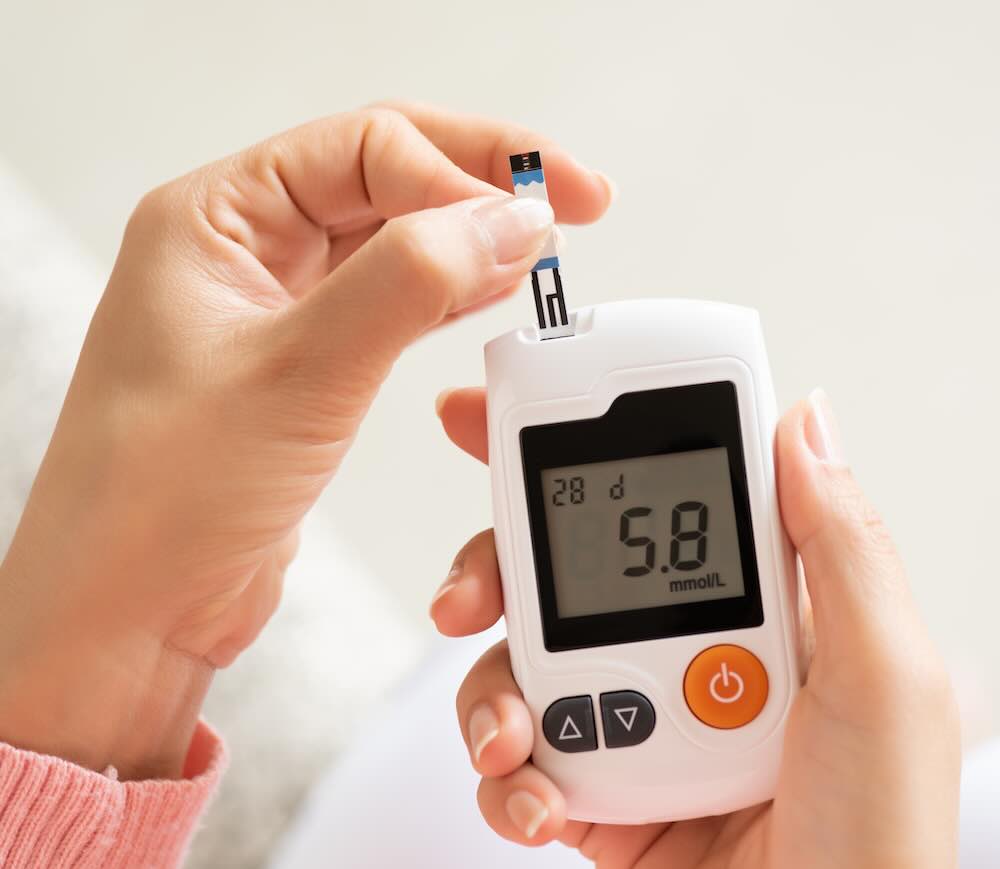Article Overview
- Why do we all love coffee?
- 5 health benefits to drinking coffee
- 5 health cautions about coffee.
- How much coffee?
- Favourate things about coffee
Many of us reach for the first coffee of the day, to give us the kick-start we need to navigate the day ahead. Coffee stimulates the brain, sharpens the mind and provides an energy boost. According to The British Coffee Association, we drink 98 million cups of coffee a day in the UK.
Recently there has been an upsurge of interest in the health benefits associated with drinking coffee. Claims include reduced cancer, diabetes and cardiovascular risk, a good source of fibre as well as benefits to sports performance. So how good for you is coffee? Is it all true, or is there a bit of sensationalism seeping into the brew?
Coffee - What's The Fuss All About?

Coffee beans contain caffeine, a naturally occurring central nervous system (CNS) stimulant. Caffeine acts on the adenosine receptors in the brain, where it stimulates wakefulness, and around the body, where it increases heart rate and breathing rate amongst other things. Coffee beans are also rich in over 300 hundred bioactive compounds such as, polyphenol chlorogenic acid (CGA), diterpene metabolites cafestol and kahweol, and the alkaloid trigonelline. Many of these bioactive compounds have anti-inflammatory and antioxidant effects that are becomingly increasingly associated with health benefits.
5 Fabulous Benefits to Drinking Coffee.
1. Antioxidant Properties
Daily physiological activities in the human body produce significant amounts of bioactive unstable oxygen reactive species (ROS). While some ROS are needed for a healthy immunity, too many ROS cause damage to cells in the body and increase the risk of a variety of diseases.
Chlorogenic Acid (CGA), Cafestol and Kahweol and other bioactive compounds are known to have considerable anti-oxidant potential, helping to neutralise the burden of ROS, and offer protection against several diseases including diabetes, insulin resistance, cancer, and ageing.
2. Anti-inflammatory Properties
Inflammation is a natural immune response that becomes activated when we are exposed to infections. Although this immune response can be lifesaving in some situations, modern Western lifestyles and diets cause high levels of unwanted chronic inflammation -this is like the body being in a permanent state of anger.
Too much inflammation can damage to healthy cells and tissue in the body. This is linked to numerous diseases including: allergic reactions, autoimmune diseases, infectious diseases, cardiovascular disease, atherosclerosis and cancer.
Chlorogenic Acid (CGA), Cafestol and Kahweol, three of many bioactive compounds found in coffee beans, have anti-inflammatory properties that may help to reduce the inflammation and lower the risk of disease. For example, Cafestol may protect cardiac health by reducing the inflammatory processes that cause damage in the blood vessels of the cardiovascular system, often leading to heart disease.
3. Protects Against Cancer.
Although studies have not yet reached conclusive results, coffee drinkers may be at lower risk of some cancers. The World Cancer Research Fund found that liver cancer is lower in people who drank coffee. Lower rates of colon, breast and endometrial cancers are also associated with regular coffee consumption.
Bioactive molecules, CGA, Cafestol and Kahweol, may reduce insulin sensitivity and chronic inflammation. These mechanisms help protect DNA from damage and reduce cancer risk.

Coffee, a beloved morning ritual for many, contains bioactive compounds that may have many positive impacts on our health and brain function.
4. Sports Performance
Caffeine consumption may help overcome muscle pain and fatigue during endurance exercise, and improve muscular performance by 6-7%. However, the benefits of caffeine consumption are not as clear in other sports, although increases in performance of between 2-7% may be felt in powerlifting and weightlifting sports.
An athlete weighing approximately 70kg would require 210mgs – 420mgs of caffeine to feel performance benefits. Drinking coffee is the go-to caffeine source for most, but it’s worth knowing that the amount of caffeine varies considerable between brands, brews and cup sizes. For example, a single shot of expresso contains 75mg of caffeine, a typical cappuccino, latte or mocha contains 150mg, but a larger coffee size can contain almost 400mg of caffeine! That’s a whole day’s quota in one go. Consuming too much caffeine can cause anxiety, stomach issues and a rapid heartbeat, which can really put you off your game. To help avoid overdosing, many athletes prefer anhydrous tablets, caffeine chewing gum, pre-workout shots, energy drinks, gels and energy bars to coffee so they can measure their intake more accurately.
5. Improved Mental Health; anxiety and depression
Coffee has numerous chemicals that are thought to impact human health, yet the impact of coffee drinking on brain health and function has not be well explored.
Population studies suggest that coffee, its active bioactive compounds including caffeine, may reduce the risk of Alzheimer’s and depression however there’s no reliable evidence to support this as yet. However, a large study investigating the role of caffeine on Alzhiemers Disease is currently in progress- the results are due to be published in early 2025.
Caffeine ingested from chronic coffee consumtion, through its action on adenoisine receptors in the brain, is also thought to increase stress resistance and neuroprotective mechanisms.
Does That Mean Coffee a Health Drink?
5 Adverse Effects to Drinking Coffee.
The darker side of coffee….
1.Caffeine Overdosing
Caffeine is a drug, and just like any other drug, there’s a long list of contraindications and potential side effects. Adverse effects range from mild to severe and even fatal. Caffeine overdosing is real, though its effects are individualistic. Too much caffeine can cause mild but unpleasant side effects, including insomnia, increased anxiety, muscel twitches, jittery feelings, and a racing, irregular heart rate. Severe reactions include psychosis, seizure, arrhythmias, and ischemia.
Caffeine withdrawal can also cause symptoms. However, gradual tapering to lower intake can usually minimise symptoms effectively.
Pregnancy.
Caffeine inatakes of 400mg per day and above during pregnancy may be linked to pregnancy complications, such as low birth weight, miscarriage and stillbirth. Caffeine is considered a pregnancy class C drug. Current NHS guidelines recommend that pregnant women limit their intake to a maximum of 200mg a day, which is about 2 cups of instant coffee.
The metabolism of caffeine in the body is far slower in pregnant women, especially during the final trimester, when it increases from an average of 5 hours to above 15 hours. Therefore the caffeine has a far greater, and longer lasting effect in pregnant women.
Remember that chocolate, cola, energy drinks and even green tea contain caffeine, so intakes can quickly add up.
Interactions with Medications
Caffeine, is classed as a methylxanthine drug and is most commonly consumed is the most consumed psychoactive drug in the world. Interactions between drugs are extremly common, and several classes of drugs are known to interact with caffeine.Examples of how caffeine and varous drugs are outlined below.
1. Some drugs, typically certain antibiotics and oestrogen, can slow down the metabolsim of caffeine which increases the potential for high concentrations of caffeine building in the blood stream and causing symptoms such as anxiety, racing heart and the ‘jitters’. Caffeine should be used with caution if you are taking the following Oestrogen pills: conjugated equine oestrogens (Premarin), ethinyl estradiol, estradiol
2. Caffeine can dampen or block the effects of drugs, such as Dipyridamole, which is prescribed to prevent blood clots in patients who have had a heart valve replacement.
3. Some drugs can speed up the metabolism of caffeine, including Fluvoxamine (Luvox) an antidepressant, and taking these two drugs togther can make caffeine concentration peak sharply and rapidly, increasing the risk side effects from caffeine.
Blood Sugar Control in Type 2 Diabetes

High Blood Pressure
Until recently, coffee was believed to increase blood pressure, but more recently, it seems things aren’t quite clear-cut. It seems that coffee can increase blood pressure in those who rarely drink coffee or drink more coffee than they are habitually used to. Young people and pregnant women are also sensitive to blood pressure spikes after drinking coffee. Caffeine in coffee is the primary reason for changes in blood pressure levels, but there may also be other components in coffee that exert additional effects. Regular coffee drinkers often experience a temporary increase in blood pressure after drinking coffee, but levels generally remain within the healthy range and return to normal within 3 hours. The NHS recommends that people with high blood pressure avoid high intakes of caffeine, and moderate intakes of coffee, tea, cola and some energy drinks.
Do you exercise regularly but your weight just stays the same (or even increases?)
Changes in body weight, the food we eat, stress, hormonal changes, medications and the environment around us can all effect the efficiency of our metabolism
Are you ready to fire up your metabolism?

So..... Is Coffee Good for Your Health?
Coffee contains numerous bioactive compounds known to have anti-inflammatory and antioxidant properties. These properties may help protect us from many diseases, including diabetes, some cancer types and heart disease.
Dose-appropriate caffeine from coffee drinks is associated with enhanced cognitive and muscular performance.
Caffeine and other neuro-protective compounds in coffee may help reduce the risk of depression and Alzheimer’s Disease.
Caffeine may cause unwanted side effects such as insomnia, racing heart rate, and anxiety if consumed in high quantities or people who are sensitive to caffeine.
Caffeine doses of above 200mg may be dangerous in pregnancy.
Caffeine may disrupt glucose metabolism in patients with diabetes.
Caffeine is associated with a variety of drug interactions, which may reduce the impact of the drug or enhance the side effects of caffeine.
So, Is Coffee a Health Drink?
NO! Absolutely not. But it tastes great and can have several health benefits when drunk in moderation.
3 Wonderful Things About Coffee
Many physical activities are aerobic, such as jogging, football, tennis, cycling, and aerobics (of course!). However, many of us prefer more relaxed, fun activities that we can easily integrate into our daily routine. These activities include gardening, climbing stairs, brisk walking, and dancing.

Sharing with friends. ‘Let’s meet for a coffee and have a catch up ‘ allows us to stop for a while, take breath and share with the people that mean the most to us. So much laughter and so many tears shared over a coffee. Coffee helps us share and nutures our friendships.

Coffee Chats –we love them. They are the ‘how are you doing?’ of our workplace culture. That lovely mug of warmth breaks down barriers and helps the conversation flow. Great plans are made, teams are built and even the most tricky workplace topics are easier to talk through over a coffee.

Just you and your thoughts. Do you reach for a coffee when you take time out to collect your thoughts, get your ducks in a row and get your head straight? Coffee can help to focus your mind, gives you something to hold, provide warmth and comfort. And it so unintrusive. Enjoy!

Book A Consultation with Juliet
Nutrition Articles
5 Benefits to Exercise and How to Get Started!
What is areobic exercixe. 5 benefits to regular areobic exercise How much exercise do I need? The 1,2 3, of how to get started. My weekly exercise plan. In January, many of us reflect on how much exercise we regularly do and then pledge to ourselves to do more....
Movember Focus: Supporting Young Men
It's Movember, a time when we focus on men's health. This annual event first started in Australia in 2003, when a group of men decided to grow a moustache to help raise awareness about prostate cancer and depression. Since then, ‘Movember’ has evolved into a global...
Treatment for Skin Conditions: Psoriasis, Eczema, Rosacea, Acne
60%Of people in the UK will suffer from a skin condition at some point. in their life25%Of people visit their GP for support with a skin condition each year.64%Of people that suffer from a skin condition use over-the-counter treatments to try to relieve symptoms but...
Bibliography
The British Coffee Association. Coffee is the most popular drink worldwide, with around 2 billion cups consumed everyday. REF
Evans J, Richards J (2023) Caffeine. National Library of Medicine REF
NHS (2023) Foods to avoid in pregnancy. REF
Carcinogenicity of drinking coffee, mate, and very hot beverages (2016) The Lancet DOI:https://doi.org/10.1016/S1470-2045(16)30239-X
Safe S, Kothari J et al (2023) Health Benefits of Coffee Consumption for Cancer and Other Diseases and Mechanisms of Action Int J Mol Sci. 2023 Feb; 24(3): 2706.
Effect of CAFfeine on Cognition in Alzheimer’s Disease (CAFCA) CLinical Trial in Progress ID NCT04570085
Bibliography
The British Coffee Association: Coffee is the most popular drink worldwide, with around two billion cups consumed every day. REF
Department of Health . On the state of public health: annual report of the Chief Medical Officer. London: Department of Health; 2009. REF
Langhammer B, Bergland A, Rydwik E (2018). The Importance of Physical Activity Exercise among Older People. Biomed Res Int.. doi: 10.1155/2018/7856823
Office for National Statistics (2022) Death registration summary statistics, England and Wales: 2022. REF
Pacheco D, 2023 Exercise and Sleep. The Sleep Foundation REF
World Health Organisation (WHO) Global Status Report on Physical Activity 2022 ISBN: 9789240059153




